The internet plays a crucial role in home searches, with 97% of homeowners using it to find their next property. Real estate SEO isn’t just another buzzword in digital marketing—it makes the difference between visibility and obscurity in today’s property market.
Google and other search engines serve as the starting point for 91.47% of buyers. This makes local SEO vital to your real estate business’s survival. Your potential clients won’t find you without proper search visibility. Real estate businesses see an impressive ROI of 1,389% through search engine optimization. No business owner can ignore such powerful results.
Local SEO has evolved beyond algorithm chasing as we approach 2025. Smart professionals position themselves where customers actively search. This piece will show you the exact steps to boost your local visibility. You’ll learn proven SEO techniques customized for real estate professionals in 2025, regardless of your digital marketing experience.
Why Local SEO Matters for Real Estate Agents in 2025
The digital world has altered the map fundamentally by 2025. Local SEO stands as the lifeblood of successful agent marketing strategies—not just another digital tactic.
How Search Behavior Is Changing
People no longer type simple phrases like “homes for sale in Denver” into search engines. Real estate searches have taken a dramatic turn toward specific, lifestyle-oriented queries. Buyers in 2025 look for particular neighborhood vibes, walkability scores, school quality, and access to coworking spaces.
A remarkable 46% of all Google searches now show local intent. This fundamental change shows how today’s home seekers know exactly what they want. Their searches have become laser-focused, with long-tail keywords making up about 70% of all Google searches. Simple terms have given way to detailed phrases like “Victorian homes in Oakwood Heights” or “lakefront properties near Pine Creek.”
Mobile search behavior rules the market, with 78% of mobile searches for local businesses leading to offline purchases. Voice search technology’s advancement means clients ask conversational questions to find real estate services in their area.
Why Local Visibility Guides Qualified Leads
Local visibility means more than just showing up in search results—it brings leads that convert. Buyers and sellers who turn to Google want immediate help from someone nearby.
Local SEO brings high-quality leads because users searching locally have usually made up their minds about buying. These targeted leads often convert quickly—some within 24 hours. Users typically search locally when they’re ready to buy, so prospects from effective local SEO strategies tend to move fast.
Google’s system favors businesses with a strong online presence in local searches. Strategic local SEO puts your real estate business front and center when potential clients need you most—creating a steady stream of qualified prospects.
The ROI of Local Seo Vs Paid Ads
Local SEO and paid advertising show clear differences in cost and effectiveness:
- Investment efficiency: A 40% marketing budget investment in local SEO can yield a 500% ROI
- Trust factor: Google’s 2023 Search Quality Guidelines show organic rankings build 3X more trust than paid ads
- Long-term results: SEO takes 3-6 months to show results but delivers traffic well after active investment stops
Organic rankings continue to work, while paid ads cease to function when payments end. Local SEO builds lasting authority in your market. Organic search visitors convert better because they know what they want.
Smart agents utilize both approaches: paid ads provide quick visibility, while local SEO establishes sustainable organic rankings. This balanced approach captures immediate opportunities and establishes lasting market dominance in your area.
Setting Up Your Website for Local SEO Success

A technically sound website builds your online presence. Your real estate website should not just draw visitors but turn them into quality leads.
Run a Technical SEO Audit
A technical audit of your website should come before any SEO strategy. This first step shows the mechanisms that might stop search engines from indexing your content properly.
Your technical SEO audit should get into:
- Crawlability and indexability: Check if search engines can easily access all your pages
- Internal linking structure: Make sure both users and search crawlers can navigate easily
- Robots.txt configuration: Check if search engine crawlers can access important content
- Sitemap status: Make sure your XML sitemap shows all pages to search engines
Improve Mobile Speed And Responsiveness
Over 75% of real estate searches happen on mobile devices. Google gives priority to mobile-friendly sites through mobile-first indexing.
Load times affect user experience by a lot—53% of mobile users leave websites that need more than three seconds to load. The quickest ways to boost speed and responsiveness are:
- Compress images while keeping quality
- Clean up your website code to speed up loading
- Use browser caching to make repeat visits faster
- Think about using content delivery networks (CDNs)
Use Structured Data For Property Listings
Search engines understand your property listings better with structured data. This can get you rich results in search. Websites that use structured data see up to 25% higher click-through rates than those that don’t.
JSON-LD works best, as it puts structured data in a <script> tag in your HTML. Your real estate listings should include:
- Price and availability information
- Exact location data
- Square footage and number of rooms
- High-quality image URLs
- Property amenities and features
Ensure ADA Compliance And Accessibility
ADA compliance matters both ethically and legally for real estate websites. The Department of Justice sees websites as places of “public accommodation” that need to be accessible.
Courts usually look at Web Content Accessibility Guidelines (WCAG) 2.0 AA to check compliance since there are no official government standards. Essential accessibility features include:
- Support for screen readers and assistive technologies
- Keyboard navigation options
- Good color contrast for visually impaired users
- Alt text for all property images
- Video captions and audio descriptions
These technical foundations will improve your local search visibility and create a better experience for potential clients.
Creating Content That Converts Local Visitors
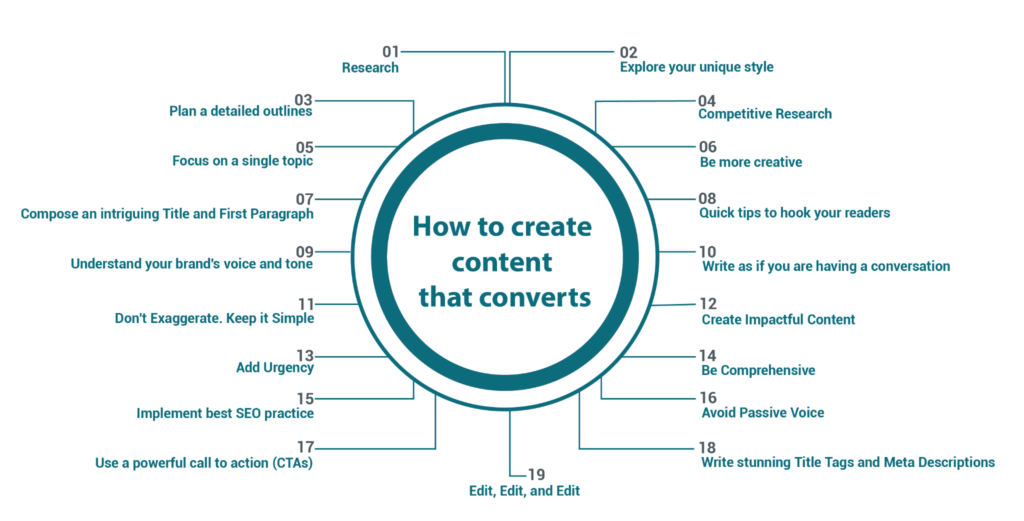
Content that speaks directly to local search intent serves as the lifeblood of effective real estate SEO in 2025. Your visibility and conversion rates can improve dramatically with content that targets local searches.
Target Long-Tail and Hyperlocal Keywords
Long-tail keywords bring qualified traffic despite lower search volumes. These specific phrases make up approximately 70% of all Google searches and show higher purchase intent. Rather than competing for broad terms like “real estate agent,” your focus should be on phrases like “Victorian homes in Oakwood Heights” or “waterfront homes in [City].”
Start by identifying keywords your potential clients actually use. Think about the questions buyers frequently ask you and research related search terms with tools like Google’s Keyword Planner or Semrush’s Keyword Magic Tool.
Build Location-Specific Landing Pages
Your website needs location-specific landing pages to appear prominently in local searches. These pages should include:
- Consistent URL structure (yoursite.com/locations/neighborhood-name)
- Neighborhood-specific content (not just duplicated pages with changed city names)
- Local landmarks and area references
- Interactive maps showing property locations
- High-quality original photography of the area

Properties with dedicated location pages often rank in the top 5 for many local keywords. This approach saves thousands in advertising costs.
Write Local Guides And Blog Posts
Hyperlocal content positions your brand as the go-to resource in your area. Your content should cover:
- Neighborhood walkability scores
- Cost of living comparisons
- School quality and ratings
- Local restaurants and hidden gems
- Community events and development news
Ryan Fitzgerald of Raleigh Realty shows this approach perfectly with detailed neighborhood guides that rank for both immediate buyer searches and prospects.
Use Video Tours And Virtual Walkthroughs
Video content substantially boosts engagement—improving traffic by 91% when added to your website. Listings with video walkthroughs generate up to 49% more leads and attract four times more inquiries than those with just photos.

You should create:
- Virtual property tours
- Neighborhood walkthrough videos
- Local business spotlights
- Market update videos
Optimize Titles, Meta Descriptions, And Headings
Search results display your title tag first. Create compelling titles that feature:
- Property type
- Location
- One unique feature
Example: “2-Bedroom Condo for Sale in Long Beach with Ocean Views | Your Brand”
Your meta descriptions should invite clicks while staying under 160 characters.
Optimizing Your Google Business Profile and Reviews
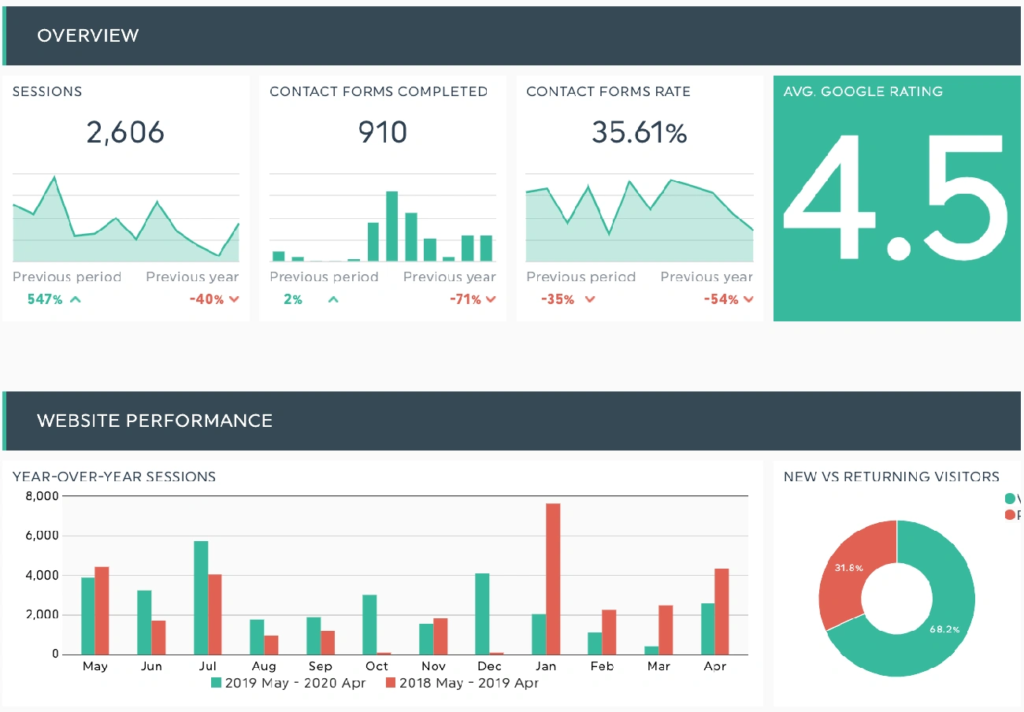
Image Source: DashThis
Google Business Profile (GBP) works as your digital storefront for real estate clients in your area. The numbers tell the story – 93% of buyers go online to research properties. This makes GBP optimization crucial to attract qualified leads.
Complete And Verify Your GBP
Start by claiming and getting your GBP verified through Google. You can verify through mail, phone, email, or video call. Mail verification tends to be the simplest way. Google will send a postcard to your business address with a verification code that you need to enter within 30 days. Your verified profile shows up better in local searches and helps build trust with potential clients.
Add Local Keywords And High-Quality Images
Write your profile description with relevant real estate keywords that show your expertise and what makes you unique. You should add at least 15-20 high-quality photos, including:
- Professional headshots
- Office or storefront images
- Property photos from your listings
- Behind-the-scenes shots of your team at work
The numbers speak for themselves—businesses with photos get 42% more direction requests and 35% more website clicks. Visual content plays a vital role in your local SEO strategy.
Encourage And Respond To Detailed Reviews
Reviews can boost your local search rankings substantially. BrightLocal’s data shows 81% of consumers looked at Google reviews in 2024. Quick responses to every review show your steadfast dedication to client satisfaction.

Make review collection part of your routine by:
- Setting expectations early with clients
- Adding review requests to your closing checklist
- Sending email reminders after closing
Use Q&A And Post Updates Regularly
Q&A sections help you address common client questions upfront. You can create your own questions and answers to build an FAQ section that gives Google’s search algorithms more context about your business.
Keep your profile active with regular Google Posts. Share your new listings, market insights, and success stories to stay visible and showcase your local expertise.
Tracking Results and Improving Your SEO Strategy
SEO success depends on measurement and continuous improvement. A well-tracked real estate website will get you the qualified leads your business needs.
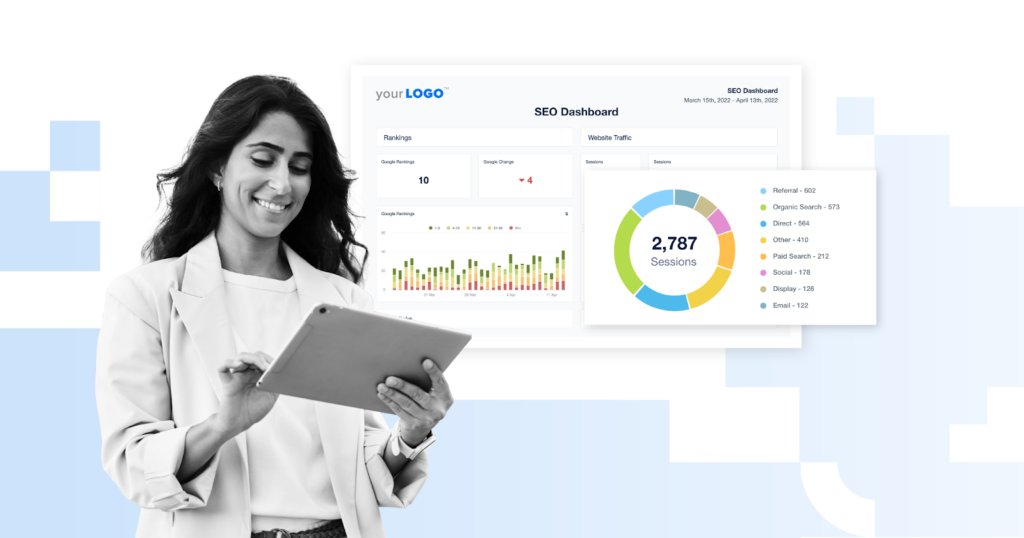
Monitor Organic Traffic And Keyword Rankings
Your website performance matters since over 96% of buyers start their home search online. Organic search brings 300% more traffic than social media. Setting up tracking tools early will help you optimize your marketing budget.
To assess SEO effectiveness:
- Use tools like SEMrush or Ahrefs to track keyword positions
- Watch for changes after Google algorithm updates
- Target keywords ranking on page two
- Learn from your competitor’s keyword performance
Use Google Search Console and Analytics
Google Search Console shows how your real estate website performs in search results. This free tool lets you:
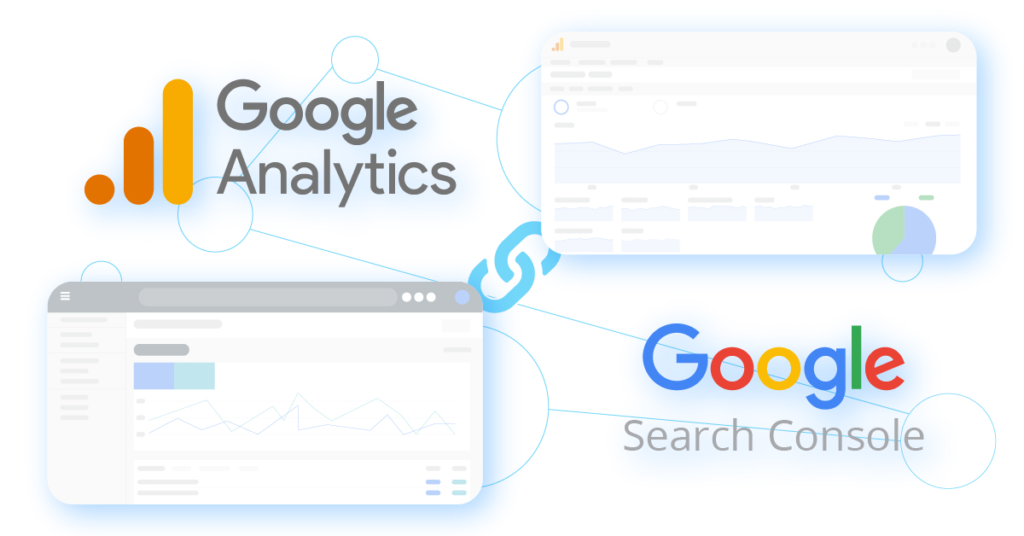
- Fix indexing issues and get updated content re-indexed
- See which search queries show your site
- Find crawl errors affecting your rankings
Google Analytics reveals which channels bring qualified leads and closed deals. You can track UTM parameters to measure specific campaign results. This helps you understand your customer’s path through multi-touch attribution models.
Avoid Common SEO Mistakes
These mistakes can hurt your real estate SEO:
- Using old practices without adapting to new algorithms
- Missing technical elements like metadata and tags
- Stuffing keywords that harm rankings and sound unnatural
- Chasing rankings while ignoring user intent
Update Content And Listings Regularly
Weekly or monthly content reviews help you spot trends in user behavior and traffic sources. Google values unique, helpful content above all. Regular updates make a big difference.

Your best results come from:
- New blog posts weekly or bi-weekly
- Refreshed existing content every quarter
- Technical audits twice a year
- Current and accurate property listings
Fresh content tells Google your site stays active and relevant. This improves your search rankings as time goes by.
Why Choose Rankfast for Real Estate SEO Services
Your real estate business success depends heavily on choosing the right SEO partner. Rankfast delivers results through customized solutions and focuses exclusively on real estate SEO.
Expertise in Local Seo For Real Estate
Rankfast’s core strength comes from providing specialized SEO services to the real estate sector. Their strategies help you stand out in a competitive market by identifying gaps through detailed competitor analysis. Their method builds brand authority effectively through quality backlinks, local optimization, and premium content.
Transparent Reporting And Measurable Results
Rankfast’s client relationships are built on transparency. Based on your priorities, they provide systems with daily live updates, weekly summaries, and complete monthly reports. Their customer support team works around the clock to address your questions quickly. You will always know how your SEO campaigns perform through their clear communication channels.
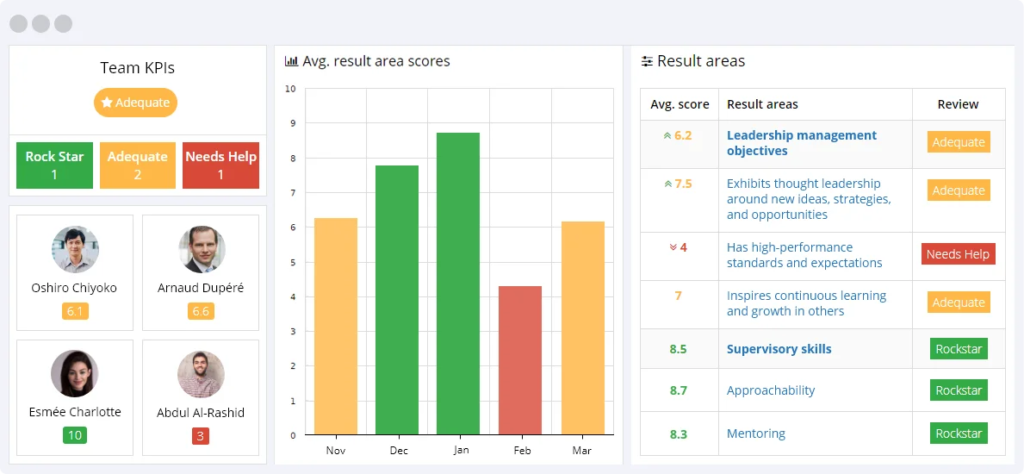
Full-service Support From Audit To Execution
Rankfast uses an integrated approach to real estate SEO. The team collects vital data through strategy calls, Google Analytics, Google Search Console, and detailed questionnaires. They dive deep into your business during onboarding to learn about your customers’ needs and challenges. This complete analysis helps create strategic plans that match your specific goals and deliver excellent results.
Conclusion
Your real estate business success depends on your local search rankings as we head into 2025. Search behavior has moved toward hyperlocal, specific queries that match buyers’ sophisticated needs. These SEO strategies will put you right where motivated clients look for services.
Successful real estate SEO needs work on several fronts. Your website must meet technical standards through mobile optimization, structured data, and accessibility compliance. Create engaging neighborhood-specific content that targets long-tail keywords your potential clients use. Make the most of your Google Business Profile by managing reviews and posting regular updates.
Google Analytics and Search Console help you track and refine your strategy. Your SEO approach must adapt to Google’s algorithms and market changes.
Want to lead local search results in your real estate market? Team up with experts who know the challenges real estate professionals face. Rankfast’s specialized local SEO services and content optimization tools can help you put these strategies to work. Save time and get measurable results that grow your business.
FAQs
Q1. How is SEO changing for real estate agents in 2025?
SEO for real estate in 2025 focuses on hyperlocal content, mobile optimization, and voice search. Agents need to target long-tail keywords, create neighborhood-specific pages, and ensure their websites are fast and mobile-friendly to meet changing search behaviors.
Q2. What are the key components of a successful local SEO strategy for realtors?
A successful local SEO strategy includes optimizing your Google Business Profile, creating location-specific content, encouraging and responding to reviews, using structured data for property listings, and ensuring your website is technically sound and mobile-responsive.
Q3. How can real estate agents improve their visibility in local search results?
Agents can improve local visibility by targeting long-tail keywords, creating neighborhood guides and local content, optimizing their Google Business Profile, using video tours and virtual walkthroughs, and consistently updating their website with fresh, relevant content.
Q4. Why is mobile optimization crucial for real estate SEO in 2025?
Mobile optimization is crucial because over 75% of real estate searches are conducted on mobile devices. Google prioritizes mobile-friendly sites in search rankings, and slow loading times can significantly impact user experience and search visibility.
Q5. How often should real estate agents update their SEO strategy?
Real estate agents should regularly review and update their SEO strategy. It’s recommended to add new blog content weekly or biweekly, refresh existing content quarterly, conduct technical audits twice yearly, and continuously update property listings to keep information accurate and relevant.
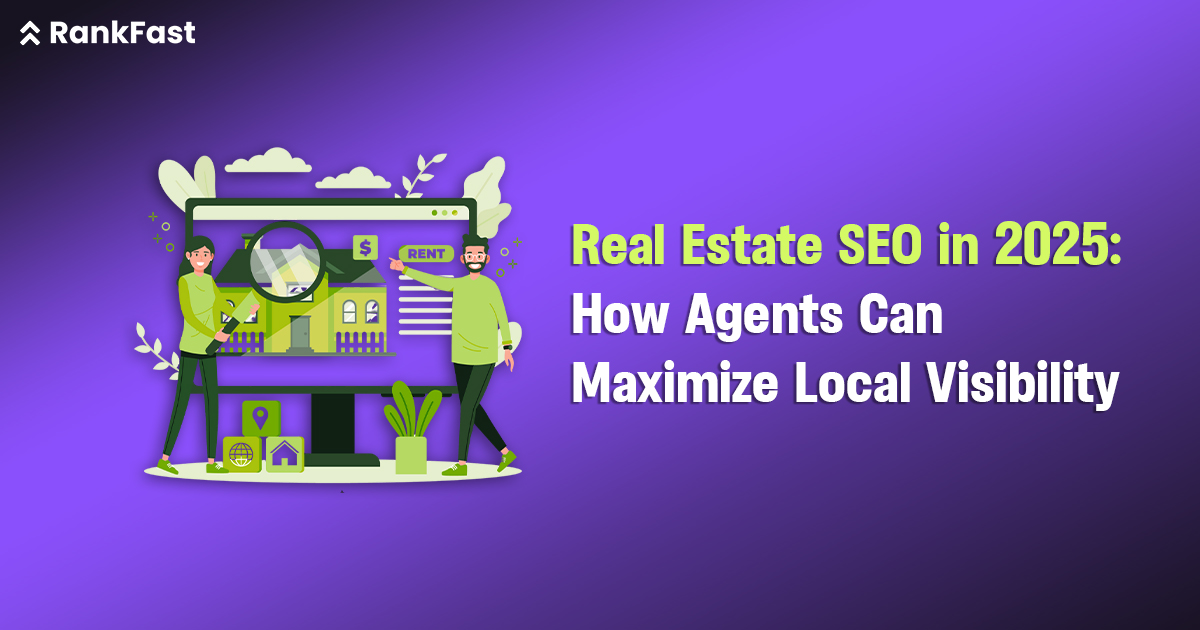
Leave a Reply